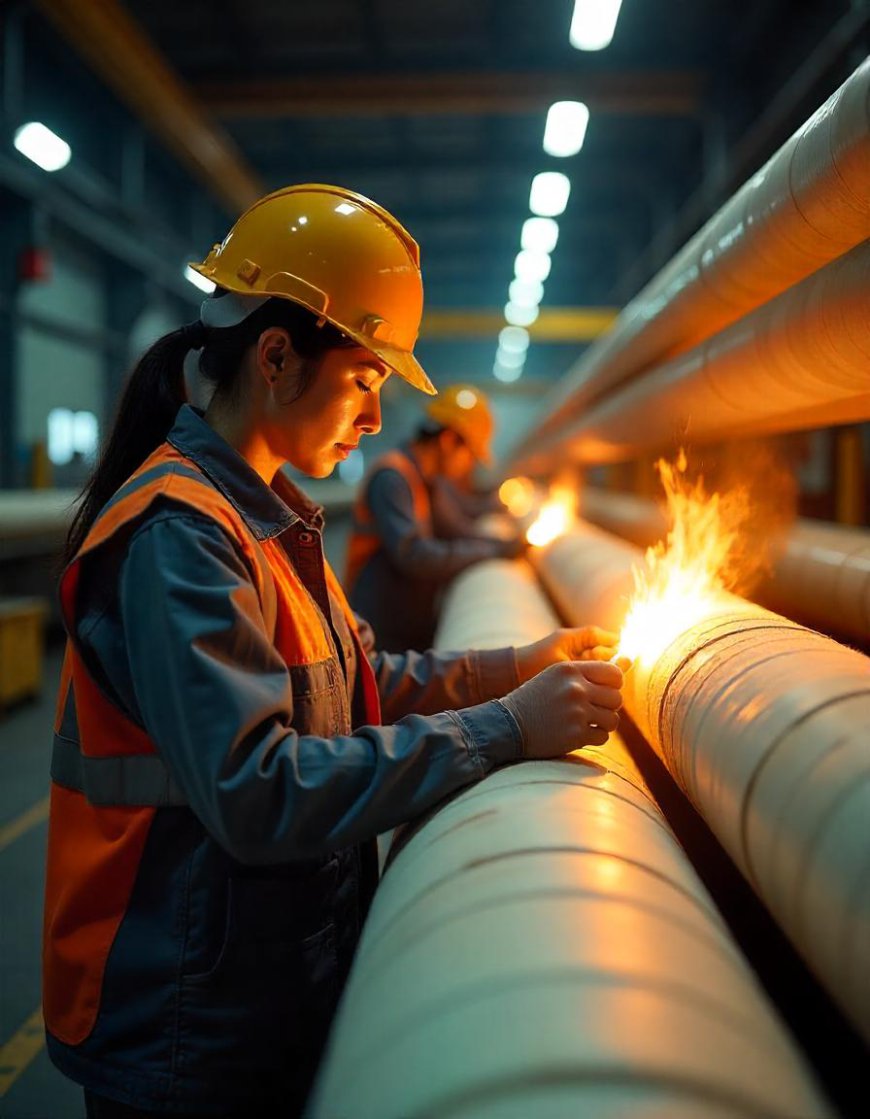A Guide to Industrial Pipe Insulation: Why It Matters
Learn how industrial pipe insulation improves energy efficiency, prevents damage, enhances safety, and reduces noise in your facility.
Industrial pipe insulation is an important topic that many people overlook. Whether in factories, power plants, or oil and gas facilities, pipe insulation plays a crucial role in keeping things running smoothly. This guide will explain what industrial pipe insulation is, why it is needed, and how it can save you money. We’ll also explore how you can learn more about services available in Alberta.
What Is Industrial Pipe Insulation?
Industrial pipe insulation is material used to cover pipes. This helps to keep the heat or cold inside the pipes where it belongs. Insulation can be made from different materials like foam, fiberglass, or even rubber. Each type of insulation has its benefits, depending on what you need.
Why Is Pipe Insulation Important?
-
Energy Efficiency
One of the biggest benefits of industrial pipe insulation is energy efficiency. When pipes are not insulated, they lose heat or cold to the surrounding air. This means your heating or cooling systems have to work harder. Studies show that good insulation can save up to 20% on energy costs. This is especially important for businesses trying to keep costs down.
A study by the U.S. Department of Energy found that insulating pipes can lead to significant energy savings, helping businesses operate more efficiently. -
Preventing Damage
Insulation also helps protect pipes from damage. When water inside pipes freezes, it can cause the pipes to burst. This is not just a hassle; it can lead to expensive repairs and downtime for your business. Insulating pipes helps maintain a steady temperature, reducing the risk of freezing.
According to the Insurance Institute for Business & Home Safety, frozen pipes can cause thousands of dollars in damage. Proper insulation is a simple way to prevent this. -
Safety
Safety is another key reason to consider industrial pipe insulation. Hot pipes can pose a burn risk for workers. Insulating these pipes keeps them cooler on the outside, making it safer for employees who may come into contact with them. This is especially important in factories and industrial settings where safety is a top priority.
The Occupational Safety and Health Administration (OSHA) recommends insulation for hot surfaces to protect workers and reduce the risk of accidents. -
Noise Reduction
Industrial environments can be loud, and noisy pipes can add to this problem. Insulation can help reduce the noise from flowing liquids and gases. This creates a more comfortable working environment for everyone. By using insulation, companies can make their workplaces quieter and more pleasant.
Research shows that soundproofing materials, like pipe insulation, can effectively lower noise levels in industrial settings, improving overall worker satisfaction.
Choosing the Right Type of Insulation
When it comes to choosing the right insulation for your pipes, there are several factors to consider:
-
Type of Material: Common materials include fiberglass, foam, and rubber. Each has its advantages and disadvantages based on the environment and temperature needs.
-
Thickness: The thickness of the insulation can affect its performance. Thicker insulation typically provides better thermal resistance but may take up more space.
-
Cost: While some insulation types may be more expensive upfront, consider the long-term savings on energy bills and maintenance costs.
Frequently Asked Question
FAQ 1: What is industrial pipe insulation made of?
Answer: Industrial pipe insulation can be made from various materials, including fiberglass, foam, rubber, and mineral wool. Each material has different properties, making it suitable for specific applications depending on temperature, moisture, and noise reduction needs.
FAQ 2: How does pipe insulation save energy?
Answer: Pipe insulation helps maintain the temperature of the liquids or gases inside the pipes. By reducing heat loss or gain, insulation allows heating and cooling systems to operate more efficiently. This can lead to significant energy savings, sometimes up to 20% on energy bills.
FAQ 3: Can pipe insulation prevent pipes from freezing?
Answer: Yes, insulating pipes help maintain a consistent temperature, reducing the likelihood of freezing. This is especially important in colder climates where water inside the pipes can freeze and potentially cause bursts, leading to costly repairs.
FAQ 4: Is pipe insulation important for safety?
Answer: Absolutely! Insulating hot pipes can reduce the risk of burns for workers who might accidentally touch them. Proper insulation also minimizes the risk of heat exposure to nearby materials and can enhance overall workplace safety.
FAQ 5: How do I choose the right insulation for my pipes?
Answer: To choose the right insulation, consider factors such as the type of material, the thickness of the insulation, and the specific needs of your facility. It's also essential to evaluate the cost versus the long-term savings on energy and maintenance. Consulting with insulation professionals can provide tailored recommendations.
Conclusion
In summary, industrial pipe insulation is essential for energy efficiency, preventing damage, ensuring safety, and reducing noise. By understanding its importance, businesses can make informed decisions that lead to cost savings and a better working environment.
If you’re interested in learning more about industrial pipe insulation or need assistance with your project, consider looking into utilidor services in Alberta. They can help guide you in the right direction.
Contact us today to learn more about how industrial pipe insulation can benefit your business and enhance safety!

 grinsulating
grinsulating 